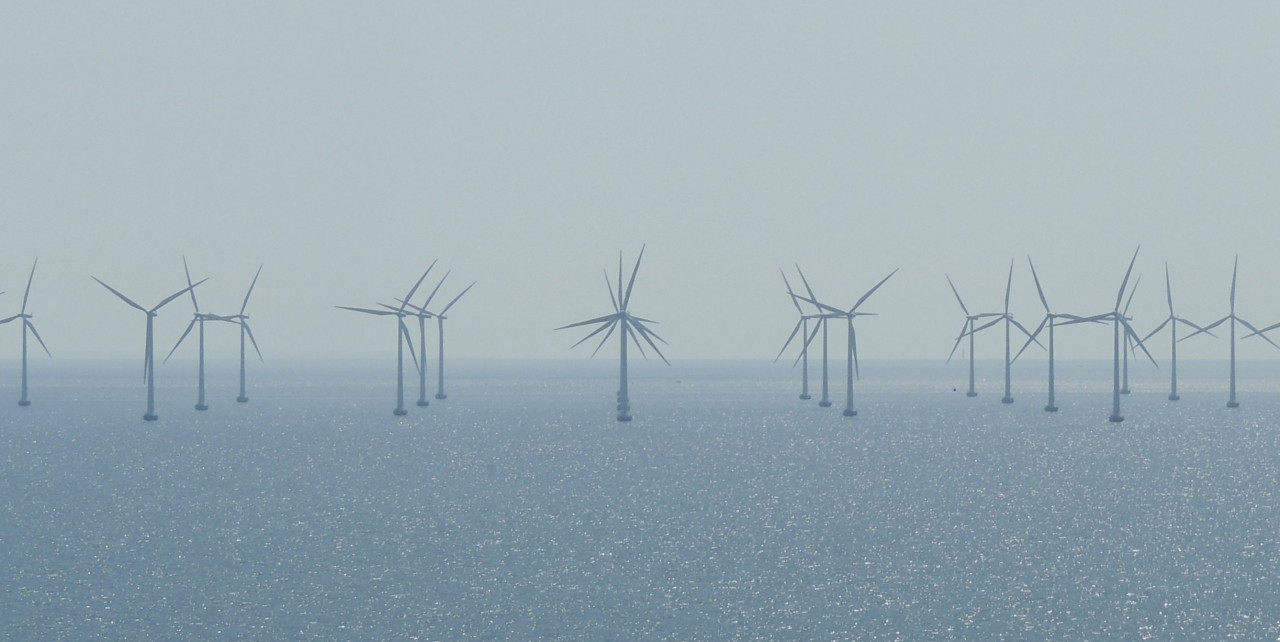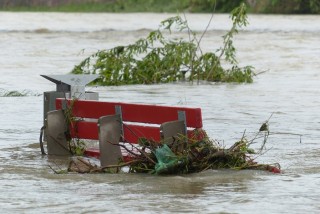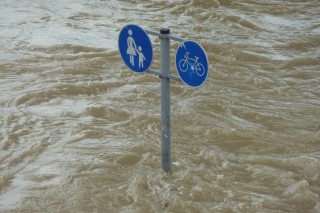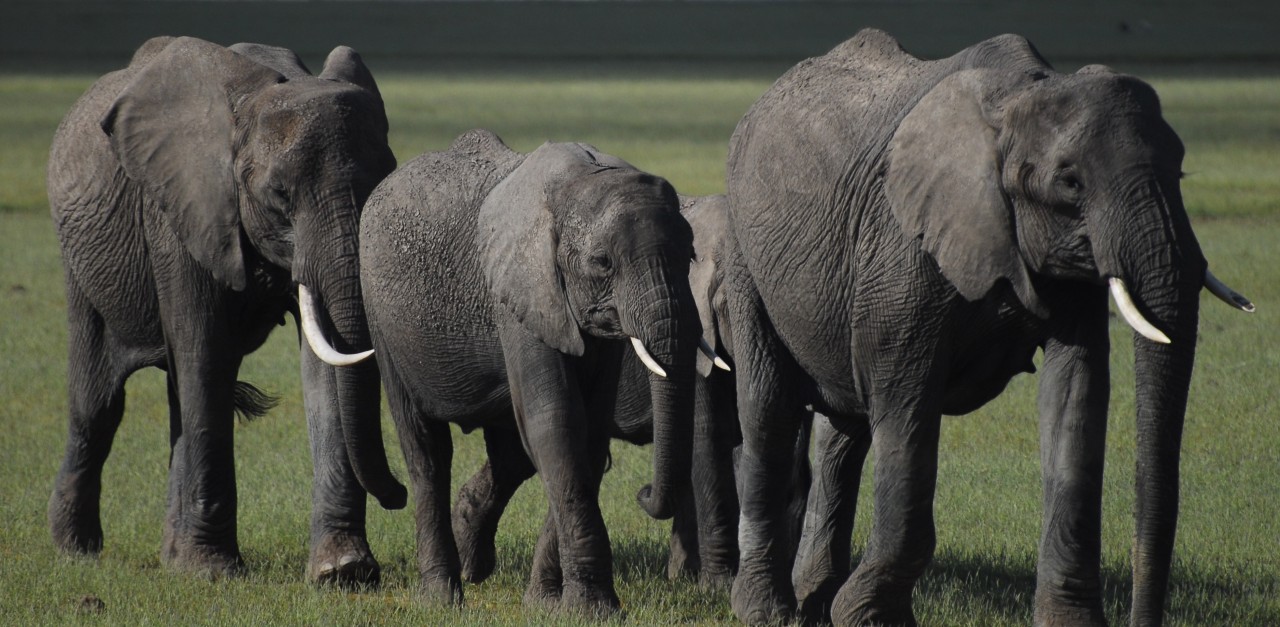The era of the Anthropocene has arrived
 To have a sustainable society we need clean energy. And a society that is not based on economic growth.
To have a sustainable society we need clean energy. And a society that is not based on economic growth.
10 month Development Volunteer team, August 2019
The environmental struggle
It has been a custom to think that the struggle about climate change is related with a couple of environmentalist hippies or a small groups of eccentric young people that want to get attention with their new style of life, as the vegetarianism or the vegan life or the extreme raw-vegan people. To the serious groups, that fight for the "real good of the society" it seemed a not important struggle, as if the environmentalists were boring people with a lot of free time, that don't have other work than to be worried about the trees, flowers or birds.
Slowly, we are realising that the global warming are affecting all the areas: Economy, poverty, education, health, politics and it is most real as it knocks on our doors. The problem will begin to worry us when it touches our dining rooms, our food pantries, our living rooms and all that threatens our comfortable lives. The truth is that climate change is already taking many lives both in the direct struggle (164 environmentalists killed in 2018) and indirectly, with the pollution of industries (Enterprises, industries, mines, etc, creating health problems and economical problems).
Because this problem is not only about the extinction problems of species or hurricanes or terrible storms, it also about the pollution in rivers, in seas, in the water-reserves, the pollution of the food, all that affects directly the human being and kills him slowly trough illness like cancer, respiratory illness, skin problems, etc. The problem will be clear when the severe droughts, that have already begun, expand and large groups of people star to move to other areas that are already overcrowded.
Easter Islands – an example
What will happen then? We have a lot of examples in our history, one of the most famous, cited in science books, is the case of Easter Island. When their habitants didn't have enough food because of the population growth, the inequality between the classes of the island and soil erosion because of the overexploitation of crops..... after that, came civil war and hundreds of people died, then came diseases and more food shortages. A small group survived - but the island was impoverished of resources and also of the cultural legacy.
This historic fact on a large scale represents what is happening today. There will came a moment when many hungry people start to move, oh no, sorry, this moment already came... How many boats there are in the Mediterranean sea waiting for help? How many people have died there this year? Now they are in a long list, they are a big numbers, they are not names, they are a worrying investigation. Since 2006 until now, more than 35.000 peoples have died trying to cross the Mediterranean sea, some research show much more. During last year, more than 48.000 peoples arrived to Spain from the sea, 22.000 to Italy and 27.000 to Greece. This is also an environmental situation, and at the same time, an economic and political situation.
The good life and its consequences
On the other hand, everybody wants a good life, but we rarely think about the consequences of this good life. How much energy have I spent writing this in this beautiful laptop, sitting in this comfortable chair, warmed by the heating, dressed in these nice clothes. The question is not one, there are thousands of questions and when we answer them all it doesn't stop there, we continue with the macro-economy and the capital, the consumerism and all the concepts about this loved-hated capitalistic system.
How many of us, who criticises the system, are we willing to leave these comforts?
Our critics in Social Media maybe pollute as much as the plastic bags we hate. Are we willing to change our way of life? Because speaking against the politicians is easy, for sure they have a big responsibility, but when we have to change something it is different.
We know that the main problem are the big corporations, and that their profits make happy many people happy, enough people to maintain the system and not change the world and also the laws.
We know the problem is clearly the neo-liberal system that has with blood bought the laws that govern us and day to day close the way of change to us.
It is necessary with a big change, global agreements between the leaders of the world.
Who are the real leaders?
But who are the real leaders today? Actually the leaders are those that direct the money for the economy of one country to increase or not. These leaders, the entrepreneurs, many times don't have face or ID number, because they are anonymous and make anonymous business societies, they will never want their profits changed to improve the well-being of the population, least the well being of animals or the flowers. Because both socially or geographically they can be affected by this problem. Sometimes, people say they are fools, they don't know how much this affects the planet. But is the contrary, they are conscious of that, they know that they are the causes and the effects of this problem, but they believe in a well-being in short term and for themselves, in other words - they want the benefits for themselves and the people around them.There are politicians that work hard, those who want to change something. Free trade agreements are said to improve availability of goods. It is very difficult to see that is is not good, because sometime we get benefits from this, some products are more available (phones, laptops, TVs, coffee makers, etc) and everybody wants this technological products in their house. The politicians could put restrictions to these agreements but everybody know what happens when someone or some country try to put limits to the corporations, everybody knows the answer of USA or EU.
Who should find the solutions?
The problem is as much of the politicians and of the businessmen as ourselves, this means, the problem is general and the solutions have to come from everybody.
Why it is necessary to say that, if it is almost obvious? Because there seems to be a division in the environment movements; there are people that think the solutions come from the politicians, others that think the solution come from the economists and others that they should come from the people. But this division is not necessary, because the solutions come from everywhere, also because there are no one solution, we need a lot and in different areas.
The way can seem impossible but it is not. Actually, the economy works in a very simple way: one person buy and one person sell, the seller takes benefits the majority of the cases, the buyer, sometimes. But there are a little difference between what I need and what I want or maybe a big difference. When the buyer stops buying the seller stops earning, and this is all. The big enterprises make profit when I buy clothes, for example, because is not only me who buys, it's me and you, and my friends, and this town and the other town, and the next city and the next country. The business is there, in the mass.
The power of the people
What is the point? We are not necessarily to blame for this situation, but we have a big responsibility and above all a big tool, especially in the economic way. Actually, we don't have an idea of how much power we have on the economy as a consumer mass, we don't have idea of our politic power as a voting mass, we don't have idea how much power we have as a thinking mass.
We are potentially dangerous for status quo and this is known from day one. We are the action that we need, in other words, the solutions and the change will come from the elite, the solutions and the changes have to come from us, yes or yes. They, the powerful ones, don't want change.
Now we have to be aware that if the economy of the big companies fall, the first that will fall with them are the economy of our houses. It means that we can produce an impact and one more time we could loose, for this reason we have to create a plan B. A strong relationship with the sustainable education, that doesn't have a relation with an elite education, it is totally popular because it comes from us, it is a new self-education to create a sustainable and equal well-being.
From the Heinrich Böll Foundation Thomas Fatheuer, Lili Fuhr and Barbara Unmüßig, analysed the proposes of the "Green Economy" and their conclusions are that if we want to reverse the problem of the climate change we have to do much more than restrictions to companies that pollute, and keep the economy in this infinite growth - the change must be radical.
The neo-liberalism is the problem, the cause and the effect and the a answers have to be categoric; we need new ways to do construction, new ways to reuse the waste, new ways to fertilize, new ways to produce electricity, new ways of communication, new way to use our places and new ways to work together.
Can we live without economic growth?
A good example are the indigenous communities that have existed for thousand of years and they have known how to relate with the nature in a respectful and sustainable way. This is thanks to their organization and the relationship between them. We can learn the best from them and include these habits to our daily life, to live in an eco-friendly way and to start to reduce our negative impact on the planet. If we stop buying clothe and meat we will produce a real impact in the production of these elements and then as a result a positive impact on the environment.
But we have to be aware that we can produce negative impacts on our economy, as I said before, so for this reason is important to understand that we also have to make sacrifices. As Arthur Manuel said, a native leader in Canada, in a meeting with the workers of the gas: "Do you think you are the only people who have had to make sacrifices? Do you know how much money, how many jobs, my people have turned down from oil and gas and mining companies? Tens of millions of dollars.
We do it because there are things that are more important than money."
Remember the cooperatives!
It's easy to fall into hopelessness in this moment, judging ourselves as humans and say: we have killed the planet, we no longer deserve to live. The problem with this attitude is that it leaves two great alternatives: 1.- "Let's do nothing and get into world depression" or 2) .- "Let's continue as we are (consuming), finally we will all die, let's have a good time!".
But when one learns of examples of collective struggle at the grass-roots level, such as in Denmark in the 1980s, when the people fought against nuclear energy and wind power turned out, hope returns to the body and one understands that we can change the world. Today in Denmark, electricity is managed through cooperatives and Germany follows suit and energy is democratised, reaching almost 85% of the energy generated and detected, through farms and cooperatives.
In countries like Chile, this could easily be achieved with the creation of cooperatives by applying for the subsidy of solar panels and other forms of clean energy, opting for the Netbilling law (Law 20.571 of Distributed Generation), the quality would allow the same action to be carried out, democratising the use and generation of electricity, with the possibility of generating profitability by selling surplus as Denmark does, but on a smaller scale. While public policies do not encourage people to create these cooperatives and do not inform policies, the possibilities are many and this is where the grass-roots organisations have their tasks.
These actions show us that the climate problem is presenting the possibility of changing the system, not only at the ecological level but at the economic and political level. Solving the climate problem presents us with new solutions in every aspect and gives us the possibility of creating a just society. Creating only a "green economy" means maintaining this system of injustice by doing less harm or perhaps only penalising the companies that pollute, which will continue to profit from the suffering of workers and nature. It is necessary to go further.
Another way of life
To pose a new way of life implies to consider a new way of relating through grass-root organisations, within which new questions arise, is it possible to change our system without changing the way we relate politically? Why do we think it's silly to talk about love in politics, for example? If emotions are the basis of society and therefore of politics, why not talk about "good treatment", "kindness", "love", "understanding", etc. It seems that only a group of our society does not bother, in different texts or meetings that I attended, most of those who dare to talk about love to create a new world are women and they are embracing feminism. That is why feminism is important when it comes to talking about climate change, of ecological struggle because it is inherent in care, protection, concepts that generally seem futile to men.. The history of man has always been the sword and the great battles, the force, the confrontation, the violence, the virility....and the history of the woman has been that of care, protection and likewise the resistance. There will be no paradigm shift without the intervention of feminism, it is vital that men understand and listen to what feminism proposes in all its movements.
In summary our paradigm shift is to understand that the people have enormous power, which goes hand in hand with the organization, union, understanding and sacrifice to create a more just, equitable, diverse, respectful society - among human beings as well as with the environment. The era of anthropocentrism has passed and it is good that it happens at once!
Bibliografia:
- Inside the Green Economies. Promises and pitfall in 9 theses
- Capitalism Killed Our Climate Momentum, Not "Human Nature". Naomi Klein.
- No is not enough. Naomi Klein.
- Conversations with Rene Matus. Electric Engineer.
- Environmental Science. Toward a Sustainable Future. Richard T. Wright. Bernard J. Nebel.
- Acnur.org








